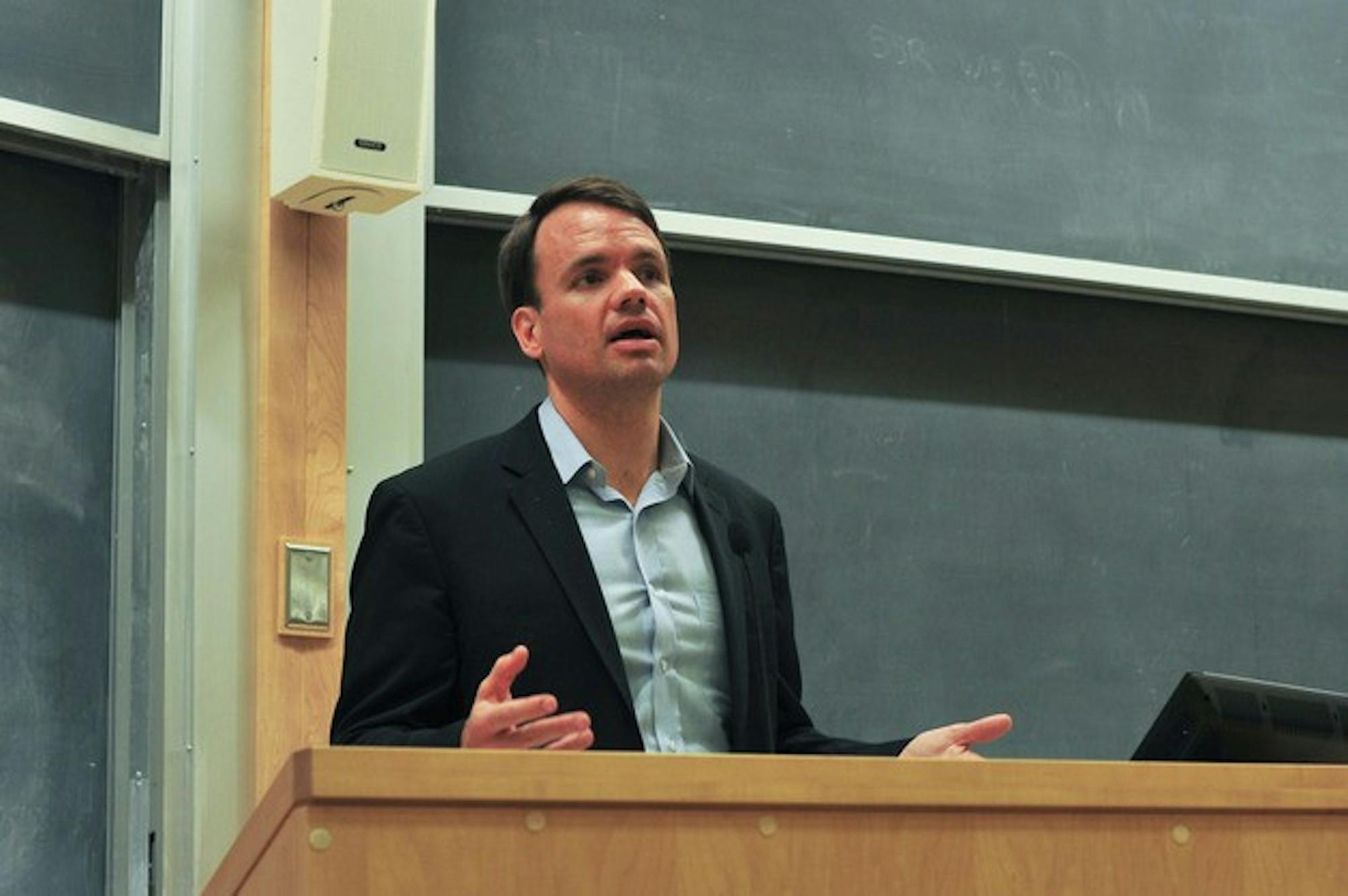Zenko identified 36 cases of Discrete Military Operations, defined as limited strikes against insurgency forces, conducted by the United States military since 1991. While 16 operations were successful, six produced "mixed" results, five proved "inconclusive" and nine failed to meet the military's desired objective, he said.
"I think [DMOs] should be used selectively and against individuals that you can clearly identify for international terrorism or clear high-level threats against the United States," Zenko said.
In the War on Terror, the U.S. military aimed predator drone strikes at insurgents who objected to an allegedly oppressive regime in Pakistan, Zenko said. By acting as the authoritative "counter-insurgency air force" of Pakistan, however, the CIA failed to address the real issues facing the country, he said.
"You shouldn't believe [DMOs] are the solution," Zenko said. "It might feel good because you're doing something, but if you're not dealing with underlying long-term problems that lead to these problems arising, you're going to see [the insurgents] do it indefinitely and forever."
The military-sanctioned assassination attempts were all categorized as failed operations, according to Zenko. These assassination attempts proved unsuccessful because targets easily adapted to American threats and instituted effective defense structures. Various types of weather, human error and political constraints from civilian political leadership also contributed to the operations' failure, Zenko said.
Former President George W. Bush instituted "personality strikes" or strikes against identifiable targets like Saddam Hussein in 2008, according to Zenko. Bush then lowered the threshold for targets who could be subject to CIA drone strikes to include individuals who provide "operational support" in attacks against U.S. soldiers, interests and allies, he said. Although the majority of these attacks ultimately fail, they have been continued under President Barack Obama, Zenko said.
The dissolution of terrorist groups through military force has a success rate of 7 percent, according to Zenko. Most terrorist groups are instead disbanded through superior intelligence gathering by counterinsurgency forces and local police actions, he said.
Zenko identified a clear split between civilian and military attitudes toward specialized military force operations. Military leaders typically recognize that such operations are counterproductive to long-term objectives in target countries, but citizens often believe that the military is an "extremely elite, highly trained, mobile, dedicated force that can solve all U.S. problems," Zenko said.
The Democratic Party has a "specific fascination" with DMOs due to a desire to limit the military's budget, Zenko said. Many Democrats wish to reduce the number of active Army and Navy personnel by increasing the number of small drone strikes and special operations, he said.
The increased use of DMOs is particularly important given that U.S. actions in the international political sphere are often emulated by other nations, according to Zenko.
"We should think carefully about what world the U.S. wants to live in," he said. "The United States has this capability today, but the United States will not be the only country with this capability."
Zenko proposed alternative ways to address insurgency problems that look beyond covert operations.
"There's no coordinated strategy in Yemen, there's none in Afghanistan or Pakistan," Zenko said. "It's a matter of diplomacy, development and better coordination across the whole of government to deal with these issues."
The lecture, "Between Threats and War: U.S. Discrete Military Operations in the Post-Cold War World," was hosted by World Outlook, the College's undergraduate journal of international affairs.




